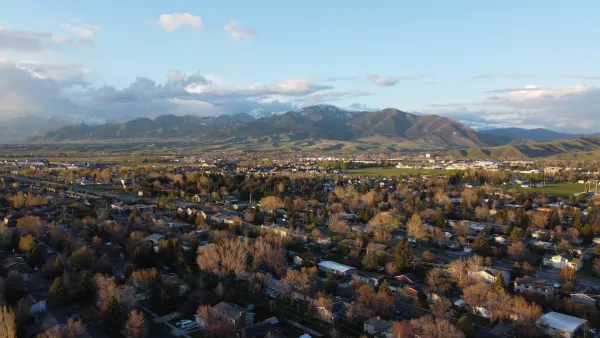Unsurprisingly, cities in Asia and Europe top the list.

A newly released list from the Oliver Wyman Forum and the University of California Berkeley’s Institute of Transportation Studies ranks transit systems in cities around the world, with Hong Kong coming in first thanks to its “low fares, limited delays or service disruptions, and for supporting itself financially.” Amelia Pollard details the list for Bloomberg CityLab.
One of the keys to Hong Kong’s success, says Andreas Nienhaus of Oliver Wyman, is the city’s willingness to make “individual mobility” less attractive to residents. “They have either large green zones or large car-free zones, or just make it very expensive to drive personal vehicles in the city. And this helps.” Other cities in the top of the list included Zurich, Stockholm, Singapore, and Helsinki. “The report also gives credit to Oslo’s multimodal network that includes park and ride stations, as well as allowing bikes on public transit.”
U.S. cities ranked low “because of their over dependence on cars,” according to Pollard. “Additionally, the report ranks cities on “mobility readiness,” with San Francisco topping the list in part for its EV-charging network. That said, Oliver Wyman points out concerns that San Francisco’s aging infrastructure puts it at risk in a region prone to natural disasters like earthquakes and wildfires.”
FULL STORY: These Cities Have the Best Public Transit Systems

Planetizen Federal Action Tracker
A weekly monitor of how Trump’s orders and actions are impacting planners and planning in America.

Map: Where Senate Republicans Want to Sell Your Public Lands
For public land advocates, the Senate Republicans’ proposal to sell millions of acres of public land in the West is “the biggest fight of their careers.”

Restaurant Patios Were a Pandemic Win — Why Were They so Hard to Keep?
Social distancing requirements and changes in travel patterns prompted cities to pilot new uses for street and sidewalk space. Then it got complicated.

Platform Pilsner: Vancouver Transit Agency Releases... a Beer?
TransLink will receive a portion of every sale of the four-pack.

Toronto Weighs Cheaper Transit, Parking Hikes for Major Events
Special event rates would take effect during large festivals, sports games and concerts to ‘discourage driving, manage congestion and free up space for transit.”

Berlin to Consider Car-Free Zone Larger Than Manhattan
The area bound by the 22-mile Ringbahn would still allow 12 uses of a private automobile per year per person, and several other exemptions.
Urban Design for Planners 1: Software Tools
This six-course series explores essential urban design concepts using open source software and equips planners with the tools they need to participate fully in the urban design process.
Planning for Universal Design
Learn the tools for implementing Universal Design in planning regulations.
Heyer Gruel & Associates PA
JM Goldson LLC
Custer County Colorado
City of Camden Redevelopment Agency
City of Astoria
Transportation Research & Education Center (TREC) at Portland State University
Camden Redevelopment Agency
City of Claremont
Municipality of Princeton (NJ)





























